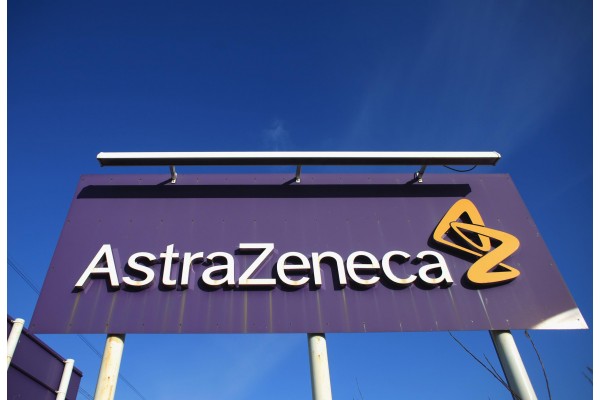Amid tough respiratory competition, AstraZeneca inks Symbicort outcomes-based deals
April 20, 2018
Source: fiercepharma
 901
901

It's no secret that respiratory drugs make up a crowded field, and forthcoming generics will make the competition tougher still. AstraZeneca's Symbicort is no stranger to the fallout, either, what with payers pressing prices and new rivals grabbing share.
But AstraZeneca is fighting back with new outcomes-based deals with regional insurers that could expand Symbicort's sales—at least among their members.
Under agreements with Harvard Pilgrim in New England and Highmark in Pennsylvania, AstraZeneca will provide rebates or better pricing if Symbicort doesn't deliver real-world benefits up to par with those in clinical trials. Highmark covers about 5 million members in Pennsylvania, Delaware and West Virginia, while Harvard Pilgrim—among the most active insurers in value-based deals—covers about 3 million lives in New England and beyond.
Rick Suarez, VP of market access at AstraZeneca, told FiercePharma such deals lower overall healthcare costs because they either reduce hospital stays, ER visits and physician utilization or they lower drug costs when medicines don't deliver. Challenges to the contracting strategy include finding partners who are willing and capable to enter the deals, and complexities with sharing data, he added.
So far, AstraZeneca has more than 35 outcomes-based deals, and Suarez said the company will continue to seek them out.
The Symbicort agreements come as AstraZeneca's asthma and COPD inhaler suffers from competition in the U.S., hurting sales by 10% in the key market last year. In its fourth-quarter earnings release, the drugmaker said the decline stemmed from "continued challenging market conditions" such as competition from other drug classes and lower pricing in managed care access programs. Symbicort generated $1.1 billion in the U.S. last year and $2.83 billion globally.
Meanwhile, generic versions of GlaxoSmithKline's rival product Advair are in the FDA approval pipeline. Though Hikma recently suffered a high-profile rejection, Mylan maintains that it expects FDA approval later this year.
AstraZeneca executives say they are not too worried about Advair generics stealing Symbicort share, though the company's recent work with payers shows it's mindful of the competition.
"[O]ur expectation is that the bulk of the effective many analogs or generics for Advair will focus on Advair," Mark Mallon, EVP of product and portfolio strategy, said during the company's fourth-quarter earnings call. "That's not to say there won't be some impact, but we really expect ... substitution sort of within the molecule because it's hard to change devices and molecules in the respiratory area in general. We plan for a continued intense competition in that category."
It's not the first time Harvard Pilgrim and AZ have hooked up in a value-based deal. The companies last May inked similar contracts for AstraZeneca's blood thinner Brilinta and diabetes drug Bydureon as sales of those drugs lagged against expectations.
Harvard Pilgrim has also struck outcomes-based contracts with Eli Lilly on its diabetes drug Trulicityand with Amgen on the cholesterol drug Repatha, which has faced skepticism from payers, and the aging anti-inflammatory blockbuster Enbrel.
Advocates for outcomes-oriented contracts said they tie costs directly to each drug's benefits for patients, and some pharma companies have leapt on board. The Trump Administration is reportedly ready to pitch outcomes-based pricing as a way to control costs, but a recent Wall Street Journal article spotlighted shortcomings of the strategy by focusing on their failure to cut drug spending in Italy.
Drugmakers and regulators there have disagreed about ways of measuring treatment effectiveness, the newspaper reported, and that's put a damper on cost savings. Plus, doctors have little incentive to seek rebates from pharma companies when a drug isn't working.
While outcomes-based deals have captured headlines in the U.S. in recent years, they're still relatively uncommon, according to a study released last fall by PwC's Health Research Institute. Only 25% of pharma executives surveyed have personally been involved in a value-based deal, though 71% recognized their potential benefits, the report showed.
At this point, the headlines don't reflect reality, PwC noted. The companies and health plans striking such deals have had an "outsized influence on trade industry messaging and new policy proposals," the report said.
By DduRead more on
- Alchemab to collaborate with AstraZeneca on prostate cancer research May 7, 2021
- AZ’s Farxiga Gets FDA Priority Review For Heart Failure January 8, 2020
- Fasenra Granted US Orphan Drug Designation for Eosinophilic Oesophagitis October 8, 2019
- Facebook Collaborates with NYU to Develop Faster MRI Scans Using AI August 23, 2018
- $700K Granted to Bot M.D. for International, Doctor-Interactive AI Chatbot App August 10, 2018
your submission has already been received.
OK
Subscribe
Please enter a valid Email address!
Submit
The most relevant industry news & insight will be sent to you every two weeks.



